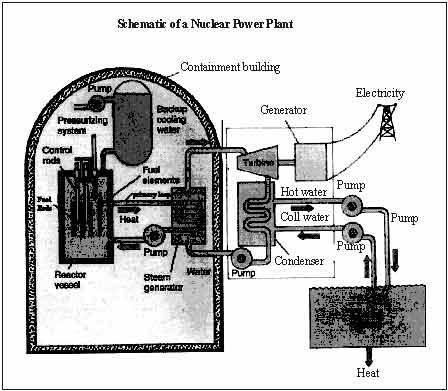(Sample Material) IAS PRE GS Online Coaching : General Science - "India’s Nuclear Programme"
Sample Material of Our Online Coaching Programme
Subject: General Science
Topic: India’s Nuclear Programme

Atomic Energy
The department of atomic energy (DAE), established on 3 august 1954 is engaged in the development of nuclear power technology, applications of radiations technologies in the field of agriculture, medicine, industry and basic research.
Following are the profile of DAE’s achievements and activities under its major programmes.
Nuclear Power Programme
DAE has been pursing the following 3 stages nuclear power programme :
- The first stage comprises setting up of pressurized heavy water reactors (PHWRs) and associated fuel cycle facilities. In PHWRs natural uranium as fuel and heavy water as modulator and coolant.
- The second stage envisages setting up of fast breeder reactors (FBIs) backed by reprocessing plants and plutonium –based fuel fabrication plants. Plutonium is produced by irradiation -238.
- The third stage is based on the thorium -uranium – 233 cycles. Uranium – 233 is obtained by irradiation of thorium.
- The first stage comprises of nuclear power programme is already in commercial domain.
The nuclear power cooperation of India ltd. (NPCIL), a public sector undertaking of DAE, is responsible for the design, construction and operation of nuclear power reactors. The company operates 17 reactors. With a total capacity of 4120 MWe.
The fast breeder programme is in the technology demonstration stage. To gain experience in the second stage, the Indian Gandhi center for atomic research (IGCAR) has been engaged in the design and developed of liquid sodium cooled fast breeder reactors. IGCAR has successfully developed the fast breeder reactor (FBR) technology. The operational experience of FBTR of more than two decades and further technology developments have facilated the design of a 500 MWe protype fast breeder reactor ( currently under construction in kalpakkam). A new public sector undertaking bhartiya nabhikiya vidhut nigam (BHAVINI) of DAE is implementing this project which is expected to add 500 MWe to the southern grid by the year 2010-11.
The third stage of the nuclear power programme is in technology development stage. The ongoing development of 300 MWe advanced heavy water reactor (AHWR) at BARC aims at developing expertise for thorium utilization and demonstrating advanced safety concepts. Thorium based system such as AHWR can be set up on commercial scale only after a large capacity based on fast breeder reactors, is built up.


